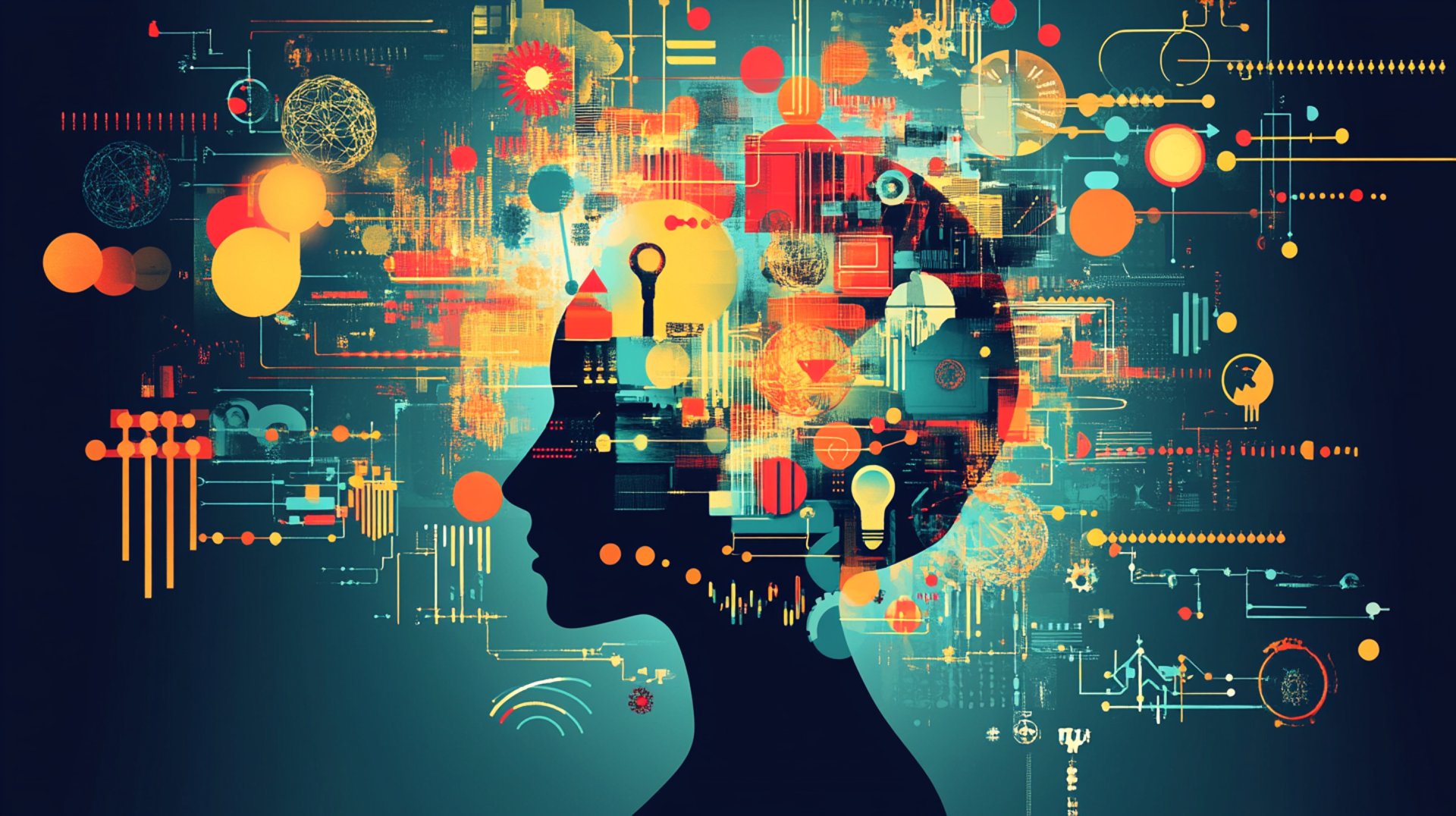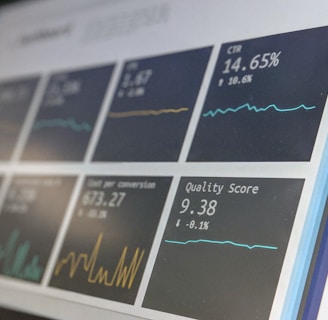
How AI Is Revolutionizing Digital Marketing for Smarter Customer Engagement
In today’s fast-paced, digitally connected world, artificial intelligence (AI) is reshaping industries, and digital marketing is no exception. As businesses strive to enhance their online presence and deliver tailored experiences to their audiences, AI emerges as a game-changer. This article explores how AI is revolutionizing digital marketing, its current applications, and future trends that are set to redefine the industry.
DIGITAL MARKETINGARTIFICIAL INTELLIGENCE
11/22/20245 min read


Overview of AI in Digital Marketing
Artificial intelligence is the simulation of human intelligence by machines, utilizing algorithms that analyze massive amounts of data, recognize patterns, and make decisions. In the realm of digital marketing, AI is revolutionizing how businesses connect with consumers. It enables marketers to understand customer behavior more accurately, automate complex processes, and create highly personalized interactions. This shift is critical in today’s competitive landscape, where customer expectations for personalized and seamless experiences are at an all-time high. Businesses that fail to adapt risk falling behind.
The significance of AI lies in its ability to handle vast and complex datasets that humans cannot manage alone. Platforms like Amazon use AI to recommend products based on browsing and purchase history, while Netflix employs it to curate personalized viewing recommendations. These examples highlight how AI enhances user satisfaction by predicting preferences and delivering tailored experiences. The efficiency AI brings to digital marketing is unmatched—it not only improves decision-making but also enables real-time adjustments to strategies, ensuring optimal performance and customer satisfaction.
AI’s importance extends beyond personalization. It also automates repetitive tasks such as data analysis, ad placement, and performance monitoring, freeing marketers to focus on creative and strategic initiatives. Moreover, AI-driven tools improve the precision of campaigns, ensuring resources are used effectively. By implementing AI, businesses can unlock new opportunities for growth and innovation, positioning themselves as leaders in their respective industries.
AI-Driven Tools for Content Personalization and Targeted Advertising
AI has redefined content personalization, enabling marketers to create tailored experiences for each individual customer. Unlike traditional methods that relied on generic messaging, AI uses advanced algorithms to analyze customer data and deliver highly specific content. For example, an e-commerce platform can display product recommendations based on a user’s previous purchases, browsing behavior, and even preferences shared by similar customers. This level of customization enhances user satisfaction, drives engagement, and increases conversion rates. Companies like Spotify and Amazon have perfected this approach, offering recommendations so accurate that they feel intuitive, fostering customer loyalty and repeat interactions.
In addition to content personalization, AI has also revolutionized advertising. Gone are the days when businesses would launch broad campaigns hoping to reach the right audience. Today, AI ensures ads are not only relevant but also strategically placed to capture the attention of potential customers. Platforms like Google Ads and Meta’s advertising services use AI to analyze user behavior, preferences, and demographics. These platforms then determine which ads to show, when to show them, and to whom, ensuring maximum impact. The result is a significant improvement in click-through rates and return on investment, as businesses only pay for ads that effectively target their desired audience.
AI-powered chatbots are another transformative tool for enhancing customer interaction. These chatbots are designed to provide instant support and assistance, engaging users across multiple platforms such as websites, social media, and messaging apps. By understanding natural language and customer intent, chatbots can recommend products, answer questions, and guide users through the purchasing process. They operate 24/7, ensuring businesses remain accessible at all times, even during off-hours. This consistent availability improves customer satisfaction while reducing the workload on human support teams, making chatbots a cost-effective solution for businesses of all sizes.
Predictive Analytics to Enhance Customer Engagement
Predictive analytics is one of AI’s most powerful applications in digital marketing, enabling businesses to anticipate customer needs and behavior. By analyzing historical data, AI algorithms uncover patterns and trends that provide valuable insights into future actions. For instance, predictive analytics can identify when a customer is most likely to make a purchase, allowing marketers to time their campaigns for maximum effectiveness. This proactive approach ensures businesses stay ahead of the curve, meeting customer demands before they arise and delivering a superior experience.
One of the most impactful uses of predictive analytics is customer segmentation. AI can group customers into highly specific categories based on their behaviors, preferences, and purchase history. This granular segmentation allows businesses to target each group with tailored messages and offers, increasing the likelihood of engagement and conversion. Additionally, predictive models can score leads based on their potential to convert, enabling sales teams to prioritize high-value prospects. This ensures marketing and sales efforts are focused where they will have the greatest impact, improving overall efficiency.
Predictive analytics also plays a crucial role in customer retention. By identifying early warning signs of churn, such as decreased engagement or irregular purchase patterns, businesses can take proactive measures to retain customers. This might involve offering personalized discounts, sending re-engagement emails, or addressing specific concerns through customer support. Starbucks, for example, uses predictive analytics through its loyalty app to deliver tailored promotions based on individual purchase history and preferences. These efforts not only prevent churn but also foster deeper connections with customers, turning occasional buyers into loyal advocates.
Future Trends in AI-Powered Digital Marketing
As AI continues to advance, its applications in digital marketing are set to expand, offering innovative solutions to complex challenges. One emerging trend is voice search optimization. With the rise of voice assistants like Alexa, Siri, and Google Assistant, more users are conducting searches through voice commands. Unlike traditional text-based searches, voice queries tend to be conversational and longer. AI helps marketers optimize content for this shift by focusing on natural language processing, ensuring businesses remain visible in this new search landscape.
Visual search is another promising trend, allowing users to search using images instead of text. AI-powered tools like Google Lens enable consumers to upload a photo and find similar products or information. For retailers, this means ensuring product images are tagged and optimized for visual search engines. This technology is particularly valuable for industries like fashion, where visual appeal plays a significant role in purchasing decisions. By adopting visual search capabilities, businesses can attract new customers and provide a seamless shopping experience.
AI-generated content is also becoming increasingly prevalent. Tools like ChatGPT and Jasper AI are capable of creating high-quality blog posts, video scripts, and social media updates. These tools allow marketers to produce content at scale without sacrificing quality, meeting the growing demand for engaging material. As these technologies improve, they will play an even greater role in content marketing strategies, helping businesses maintain a consistent and impactful online presence..
Conclusion
Artificial intelligence has redefined digital marketing, enabling smarter, more efficient, and deeply personalized customer engagement. By integrating AI-driven tools like predictive analytics, chatbots, and content personalization systems, businesses can meet—and exceed—modern customer expectations.
As AI technology continues to evolve, marketers must stay informed about its capabilities and applications. The future of digital marketing is undeniably AI-powered, and businesses that embrace this shift will find themselves at the forefront of the industry.
If you’re ready to transform your digital marketing strategies with AI, contact ScaleUp today. Let us guide you in leveraging this transformative technology to revolutionize your customer engagement and achieve sustained growth.






ScaleUp
Your Partner for Tailored Growth
About
scaleup.general@gmail.com
© ScaleUp 2024. All rights reserved.
